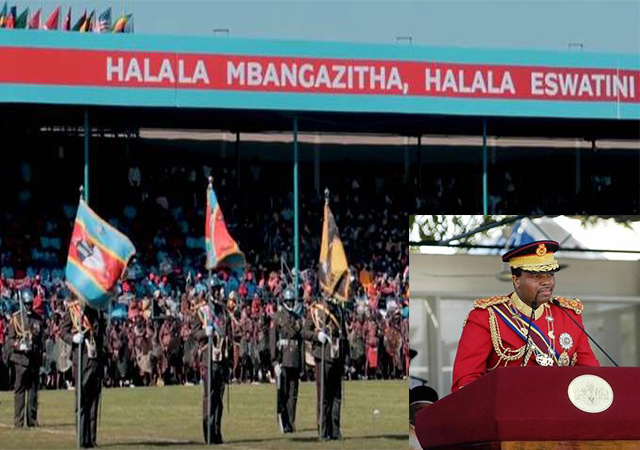 King Mswati III said that “African countries, on getting independence, reverted to their ancient names before they were colonised”. [photo: Government of Swaziland/ eSwatini]
King Mswati III said that “African countries, on getting independence, reverted to their ancient names before they were colonised”. [photo: Government of Swaziland/ eSwatini]
The word sounds and looks like a modish online company but eSwatini is the new name of Swaziland, by decree of King Mswati III, one of the world’s last absolute monarchs.
Or rather the old name, as Mswati claimed he was simply restoring the pre-colonial name to mark the 50th anniversary of independence. The announcement – and independence celebrations – could not wait until the actual anniversary in September and were brought forward to coincide with his 50th birthday in April. Surprising as it may sound, the king claimed many people around the world mistook his country for Switzerland, Reuters reported.
Ken Opalo at Georgetown University noted that ‘per capita income in eSwatini has been in decline since peaking at just over $4,000 in 2014. One reason for this name change might be King Mswati’s search for legitimacy via other means.’ Reports of thousands marching in protest at worsening living conditions and the cost of the anniversary celebrations, with tyres burned and police firing rubber bullets, might support Opalo’s assertion.
Among African states in the Commonwealth, barely half have changed their colonial name. But perhaps in the case of certain ignoble names bequeathed by colonial overlords a new name might an improvement: Cameroon, for example, means ‘shrimps’.



